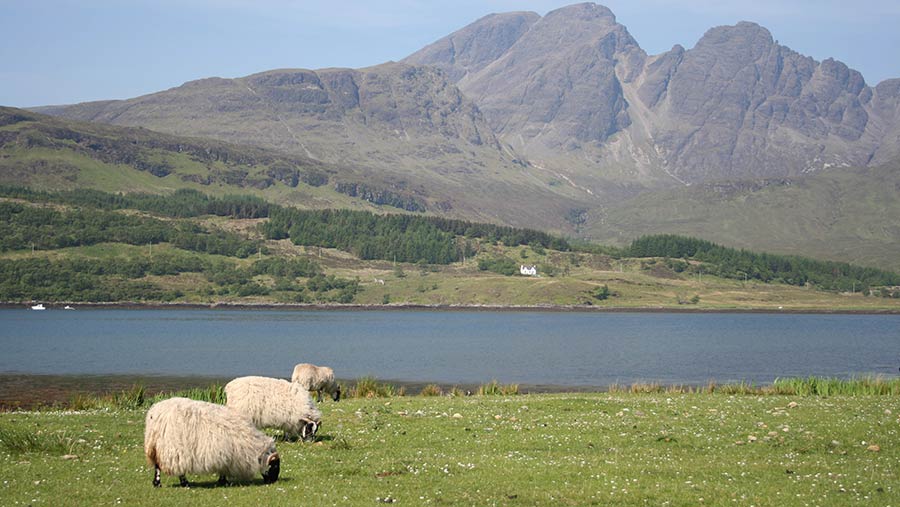Land strategy fails to grasp farming role says NFU Scotland
 © Stephen Finn/Adobe Stock
© Stephen Finn/Adobe Stock A Scottish government land use strategy has come under fire for failing to prioritise food production and land-based industry.
Scotland’s Third Land Use Strategy sets out Holyrood’s aims and targets for the next five years. The 48-page report covers future policy for rivers, islands, settlements and semi-natural land.
But it includes just two pages on enclosed farmland, which it describes as supporting livestock and arable production.
See also: Scotland’s land reform: What has changed for farmers?
The section sets out how the government will continue to use a regulatory framework to limit the effect of farming activity on the environment through tools such as cross-compliance.
It also highlights £500m of grants made available for woodland creation, peat bog restoration and community-led regeneration.
Agriculture missed out
NFU Scotland director of policy Jonnie Hall welcomed the report’s stance on managing land sustainably and stressed that farmers were fully committed to playing their part.
However, Mr Hall said the sections relevant to agriculture were incomplete and failed to fully grasp the role played by active farming and food production in sustainable land use.
Active land management was viewed by the report as secondary to environmental and social priorities, he said. The imbalance was a flaw that could undermine the goal of sustainable land use.
“A major emphasis in the strategy is on woodland expansion and peatland restoration as central planks in tackling climate change,” Mr Hall said.
“While part of the solution, these must not result in more efficient and sustainable agriculture being marginalised, undermining economic activity in rural areas.”
It is equally vital to ensure future policy decisions relating to land use allow Scottish farmers and crofters to continue producing high quality, local food.
That, he said, went hand-in-hand with delivering the multiple benefits that Scotland’s varied landscapes yielded from active agricultural management.
Long-term strategy required
Landowners also criticised the report for failing to set out a long-term strategy that encouraged investment in land-based businesses.
Scottish Land & Estates head of policy Stephen Young acknowledged that achieving a balance between production and sustainability on land use was “challenging but very important”.
“While we welcome the publication of the land use strategy, we would encourage the government to set a longer planning horizon to enable land-based business to confidently plan and invest in their future with certainty,” he said.
“We must start making critical decisions now and accelerate action on our post-Common Agricultural Policy funding.”
